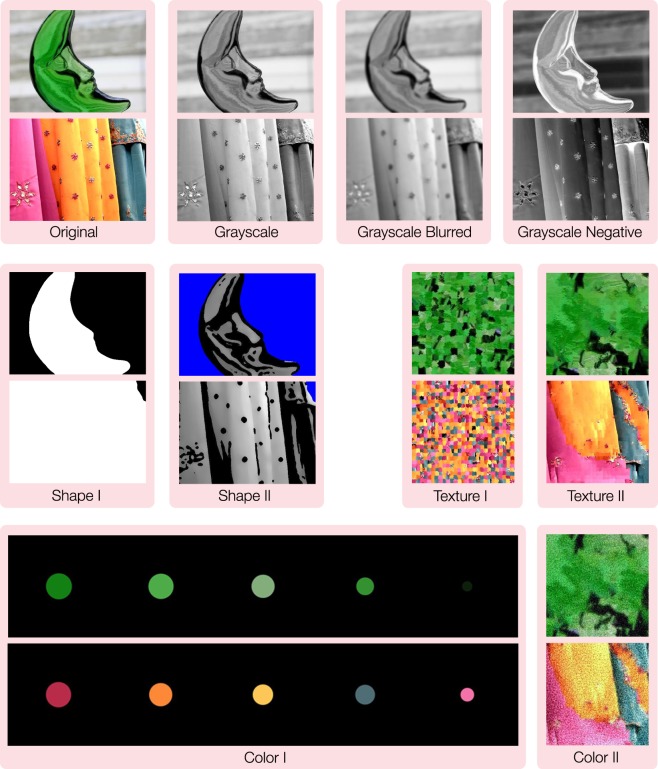Figure 6.
Stimuli used in Material Degradation experiments. In Degradation I experiment (Grayscale, Grayscale Blurred, and Grayscale Negative), we manipulated each photograph in our database to degrade much of the information from a particular surface property, while preserving the information from other properties. In Degradation II experiment (Shape I and II, Texture I and II, Color I and II), we did the reverse. Shown here are two examples from our database, a glass decoration and embroidered garments, along with the three manipulations of Degradation I and the six manipulations of Degradation II experiments. The Grayscale manipulation, for instance, tests the necessity of color information. Grayscale Blurred degrades texture information, and Grayscale Negative makes it hard to see reflectance cues like specular highlights and shadows. The Texture I and II manipulations preserve local spatial-frequency content, including color variations, but lose overall surface shape. The Shape I and II manipulations preserve either the global silhouette of the object or a line drawing-like sketch of the surface shape. The Color I and II manipulations preserve aspects of the distribution of colors within the material, but lose all shape information, and all or much of the texture.

